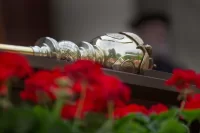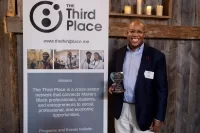
On Sept. 2, Convocation marked the entry of the Class of 2029 and transfer students to campus with wise words on finding strength in our differences, fighting for what you believe in, and maintaining hope.
President Garry W. Jenkins opened the ceremony held on the Historic Quad with a joyous greeting to the newest Batesies.
“Welcome home,” Jenkins said. “We are so pleased that you have decided to join our Bates community, and we look forward to seeing all that you will do in the months and years ahead.”
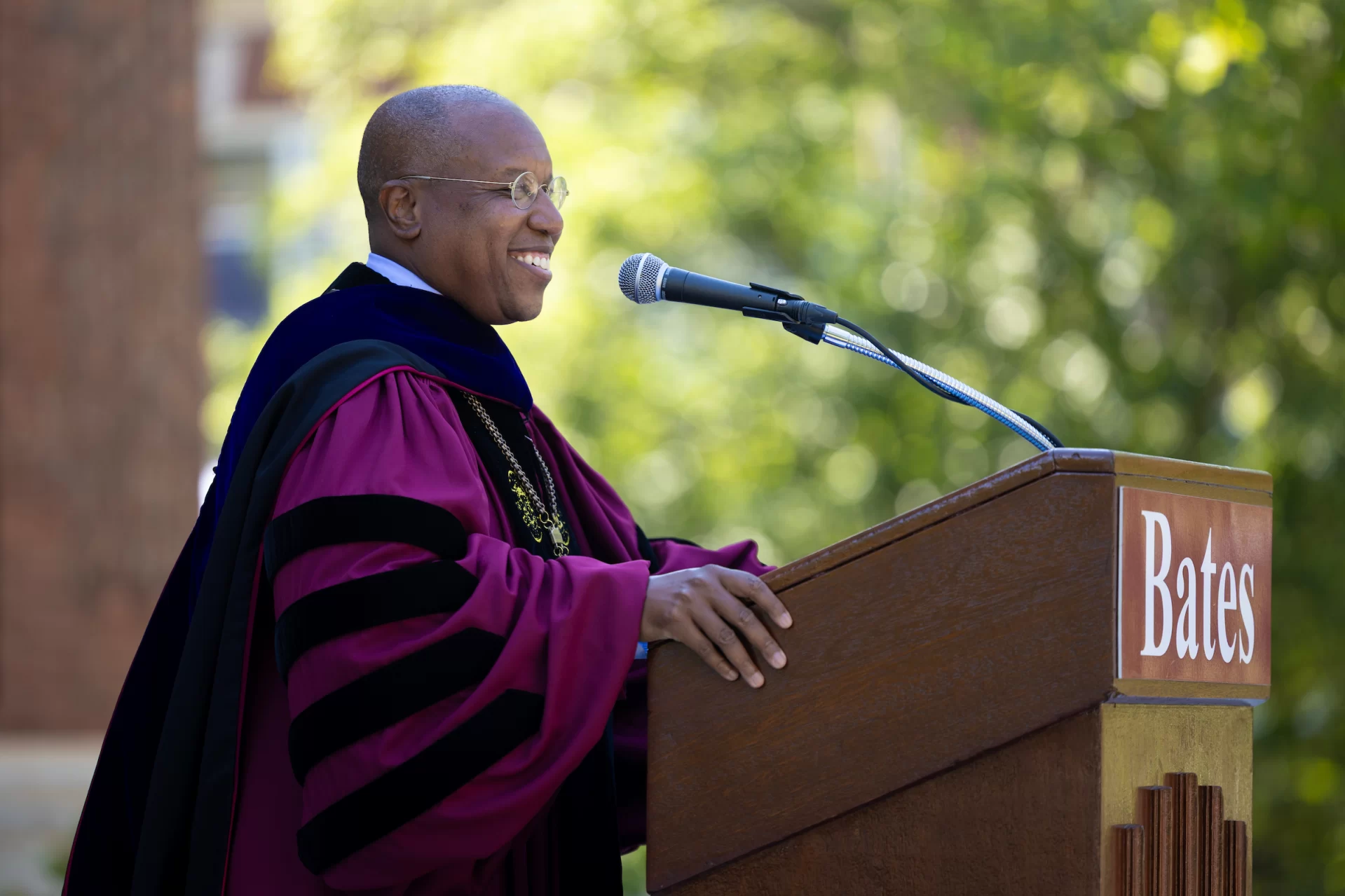
Student body co-presidents Zachariah Richards ’26 of Princeton, Mass., and Mohammad Zayd ’27 of the Bronx, N.Y., also spoke, giving the student perspective on navigating life at Bates. Charles A. Dana Professor of Gender and Sexuality Studies Rebecca Herzig delivered the Convocation address, followed by closing remarks from Raymond Clothier, Bates’ interim multifaith chaplain.
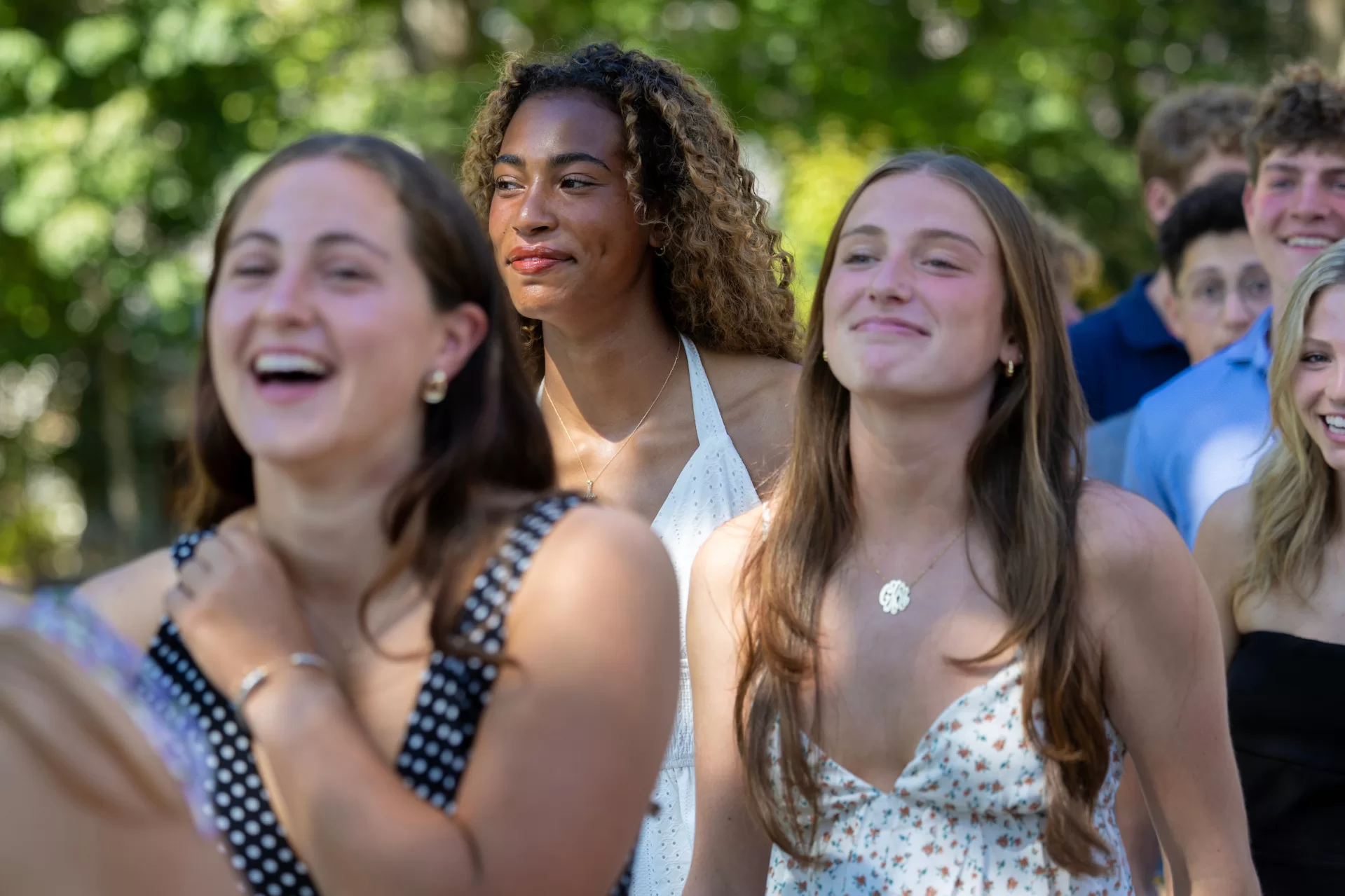
This year’s Convocation was a hot, sunny event, with the only reminder of the season to come the occasional leaf, parched by the drought, drifting toward the ground. Faculty and senior staff processed into the event in regalia, followed by members of the Class of 2029 and transfer students, who were greeted with cheers from upperclassmen waiting outside of Hathorn Hall.
“It’s natural to be excited, but it’s also natural to be nervous, so I encourage you to pause even just for a second and take it all in,” Zayd told the new class. “It was a long journey to be where you are now, so celebrate this moment.”
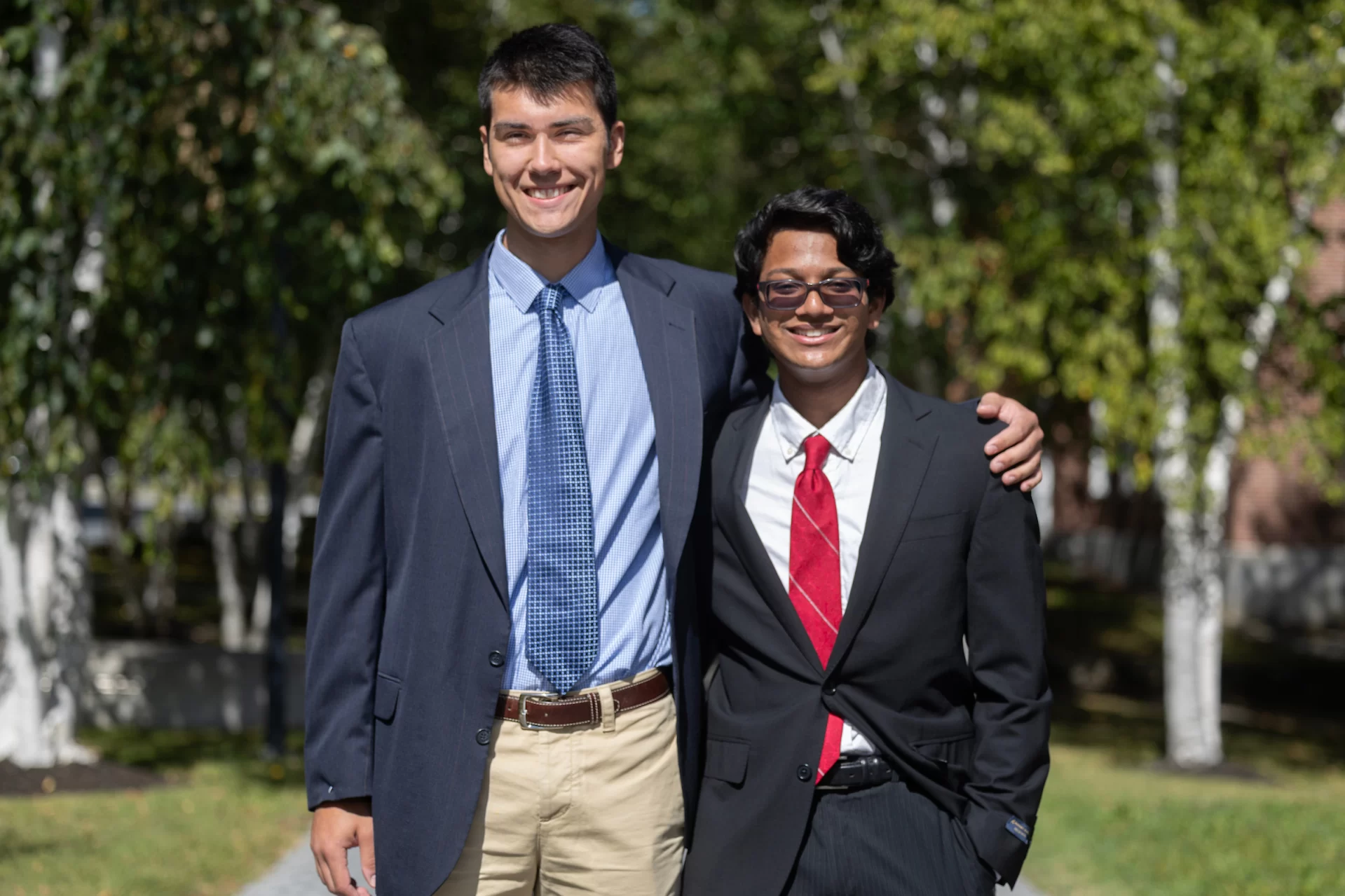
In his opening remarks, Jenkins addressed current political and social landscape, including challenges to democracy, personal freedoms, fundamental rights, and civil discourse.
“When we lose these critically important core values, our democratic commitments, our liberties, our ability to live in community, we are diminished, we are ourselves lost,” Jenkins said. “But here at Bates, we are rooted in those same values.”
“Education is the long game.”
Charles A. Dana Professor of Gender and Sexuality Studies Rebecca Herzig
Bates as a place is built on, and thrives, thanks to a community of students from a variety of backgrounds, each of whom was selected because they embrace Bates’ values of “academic excellence, inclusivity, and social responsibility,” Jenkins said. He pointed to the college’s mission statement:
… With ardor and devotion — Amore ac Studio — we engage the transformative power of our differences, cultivating intellectual discovery and informed civic action. Preparing leaders sustained by a love of learning and a commitment to responsible stewardship of the wider world, Bates is a college for coming times.
“I draw your attention to the phrase ‘the transformative power of our differences,’” Jenkins said. “Remember, this phrase defines Bates. It guides us at its heart.”
This phrase, he explained, is about pluralism, “the idea that multiple perspectives, ideas, approaches, groups, ways of life can coexist and make society stronger rather than weaker.”
While Bates didn’t invent the ideal of pluralism, it’s something that Bates does well — perhaps even better than most, Jenkins said. The college recognizes the fantastic potential in engaging with multiple perspectives and differences, to make society stronger and more empathetic.
“It takes all of us wanting to do better, to be better,” Jenkins said. “It’s a never-ending project, but there’s joy to be found in the effort, and I know that all of you are up to that task. We certainly need it throughout our nation, in our communities, and here on our campus, too.”
Fifteen years ago, Herzig, whom the Class of 2025, in keeping with tradition, selected to give this year’s Convocation address, helped craft that mission statement. As Jenkins did, she reflected on Bates’ role in today’s zeitgeist.
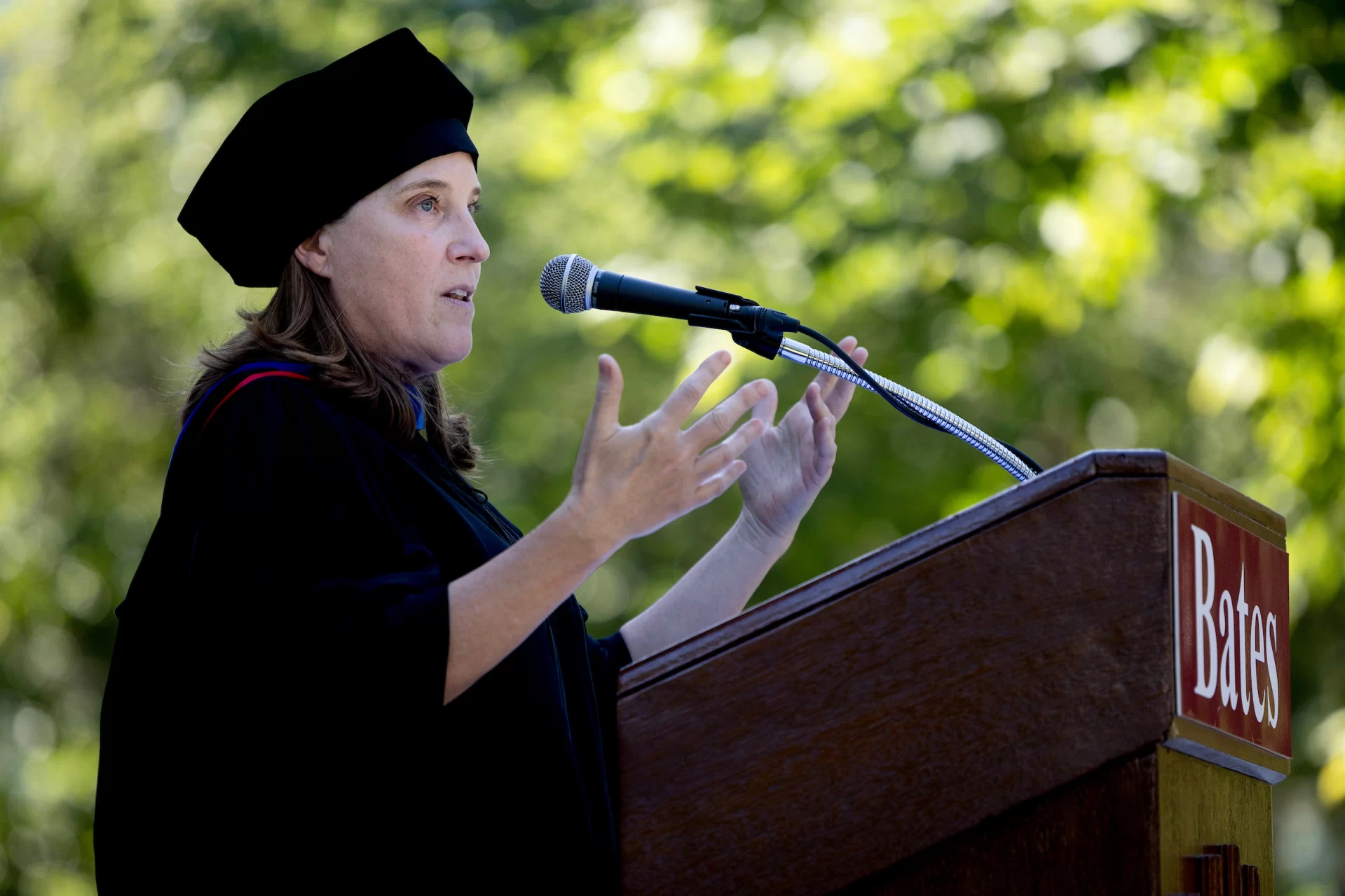
Herzig mentioned jogging around the Campus Avenue Field and noticing the large, garnet banner reading “FIGHT ON FOR BATES.” The waving banner prompted her to reflect on what it really means to defend Bates when “a fight is plainly on — a fight for pretty much everything I hold dear as an educator and as a person,” Herzig said.
An important part of the fight, she said, is acknowledging the exhaustion in fighting and yet still finding a way to retain hope. Luckily, a place like Bates is rife with that.
“Small, residential colleges were designed to nurture shifts in thinking — that is, to cultivate hope,” Herzig said. “The plan evident all around us was to produce continuous, almost kaleidoscopic immersion in mind-altering places, libraries, laboratories, classrooms, dormitories, chapels, tree-lined walls.”
From its inception 170 years ago, Bates had lofty goals of abolitionism and equality set in place by founder Oren B. Cheney. The principles that the founders attempted to act in accordance with, even if never fully achieved, still matter, Herzig said. Every contribution to a better future matters. As an 11-year-old girl writing to Cheney in support of his abolitionist appeals wrote, “the Great Ocean is made of little drops.”
“Sort of like that 11-year-old letter writer, I imagine myself contributing to a place that does not yet exist,” Herzig said. “Education is the long game. The fight is for the world to come next. None of us can know what might prevail in that fight.”
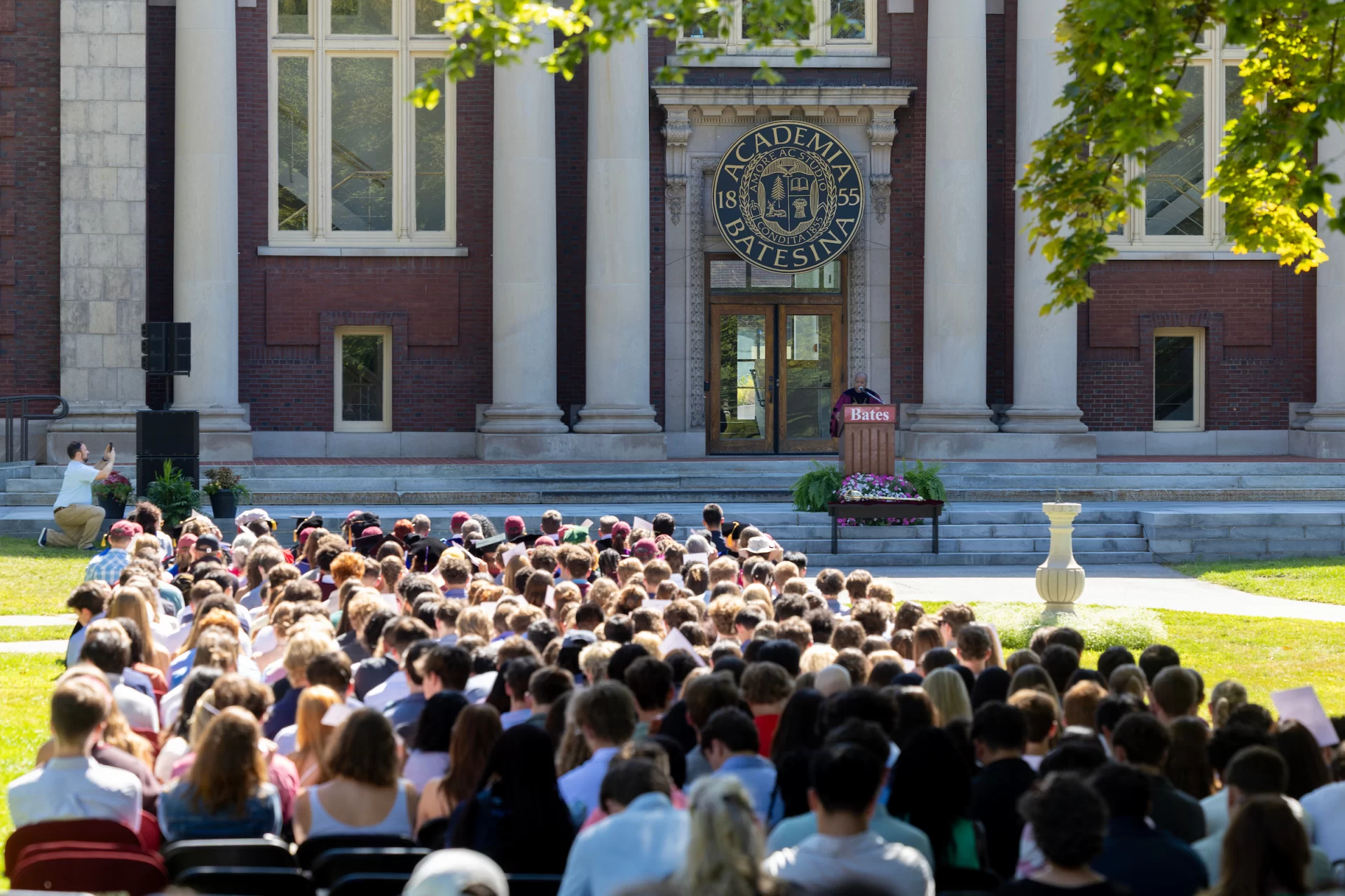
Raymond Clothier, interim multifaith chaplain, closed the ceremony with remarks echoing previous sentiments about the ability to grow and change through education.
“Take a breath, feel your feet on the ground,” Clothier said. “May this moment be an opening behind the den of daily clutter. Your life is speaking to you about who you are. Listen well. May it be so.”
At Convocation’s conclusion, attendees gathered near Gomes Chapel for the annual tree planting ceremony held in memory of Bates community members who died in the past year.
Among the words and poems students, faculty, and staff read was “Departures,” a poem by Senior Lecturer Emeritus in English Robert Farnsworth, who died last November, read by Benny VanDerburgh, a spiritual care fellow with the Multifaith Chaplaincy.
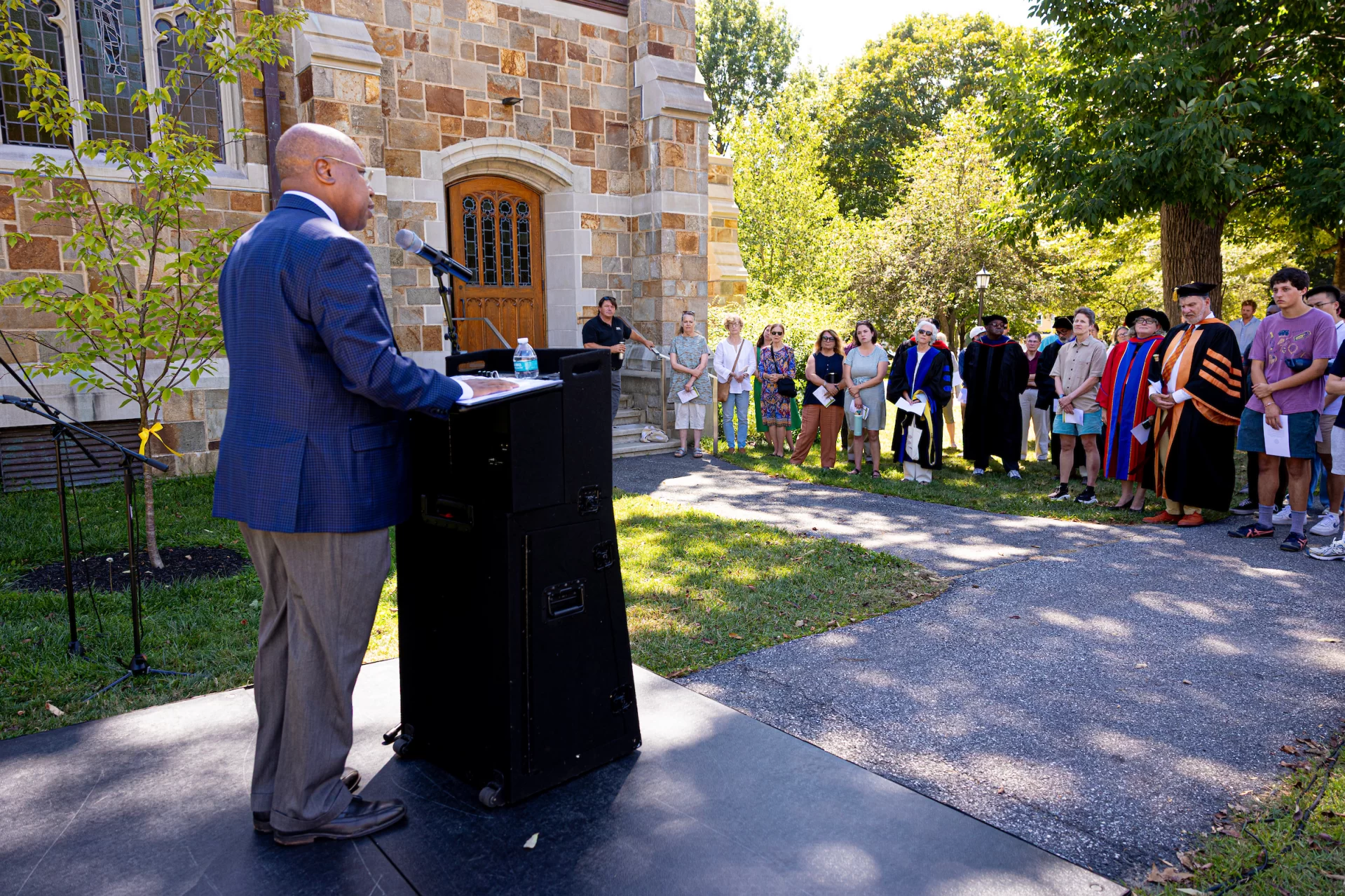
The following Bates community members were remembered at the service:
Armand Bernier, Facility Services – Custodial
Joanna Boley-Lee, director of Affirmative Action
Gene Clough, lecturer emeritus in geology and physics
Robert Farnsworth, senior lecturer emeritus in English
Normand Gagne, Facility Services – Custodial
Lorette Goulette, Dining, Conferences, and Campus Events
Sylvia Gray Hawks, academic administrative assistant – Dean of Faculty
Sue Houchins, associate professor of Africana
Ken Labrecque, instructor in music
James (Jim) Morrison, Human Resources
George Ruff, Dana professor emeritus of physics
Kenneth Smith Sr., Dining, Conferences, and Campus Events
The ceremony celebrating them concluded with attendees pouring water from Lake Andrews over the freshly-planted tree roots and a benediction, led also by VanDerburgh.
Faculty Featured
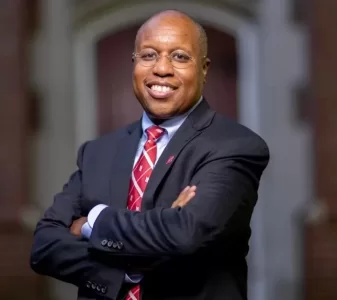
Garry W. Jenkins
President and Professor of Politics

Rebecca Herzig
Charles A Dana Professor of Gender and Sexuality Studies

